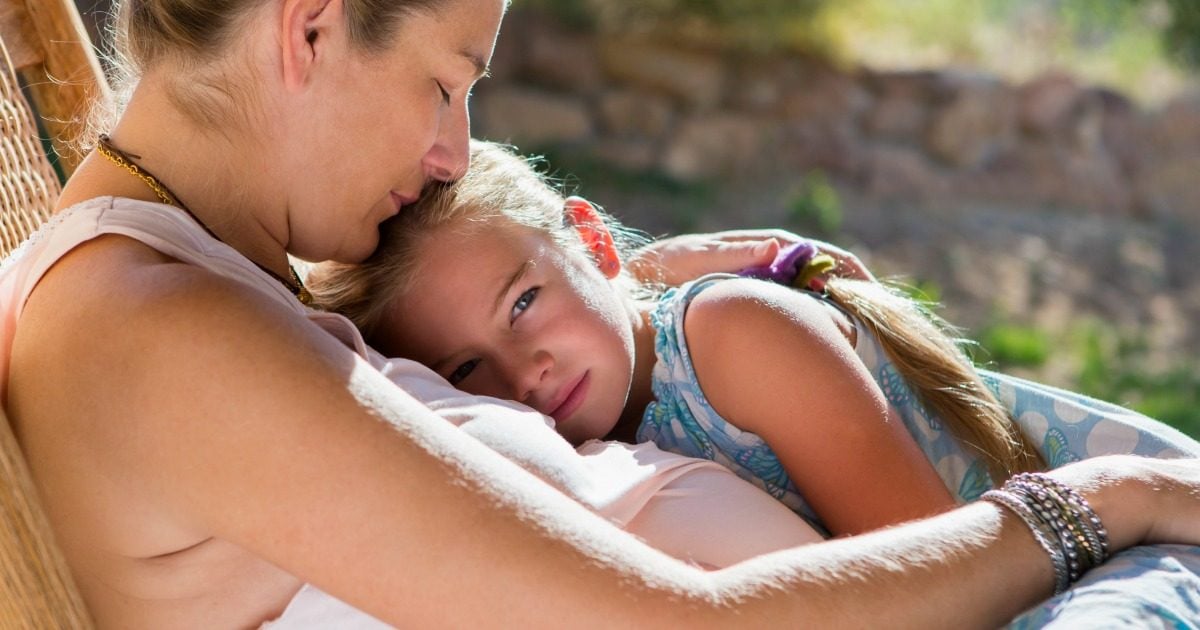
I was forced to hug people as a child. If I showed discomfort or dared to say no, I was disciplined. Not wanting to hug adults was seen as disrespectful.
I wasn’t trying to be unkind. I simply didn’t want to hug someone or be forced to sit on their lap. I’m not a particularly demonstrative person and as an adult, I only hug my husband and daughter. Forced affection is something that makes me feel awkward and uncomfortable.
Adults not being able to take rejection was made my responsibility. I forced myself to hug adults to avoid punishment. This sent out the unconscious message that my body wasn’t mine.
Watch: Explaining consent with dinner. Post continues below.
This had detrimental consequences. I was abused and it took years to recognise it as abuse. Not letting adults do what they want offended them and then I would be punished. So why would this be any different?
I now have a daughter of my own. At the moment, she is very loving and happy to show affection to pretty much anyone. But this could change, whether that be she becomes more selective with who she shows affection to or not wanting to show affection at all.

Top Comments
PS there is a typo in the title